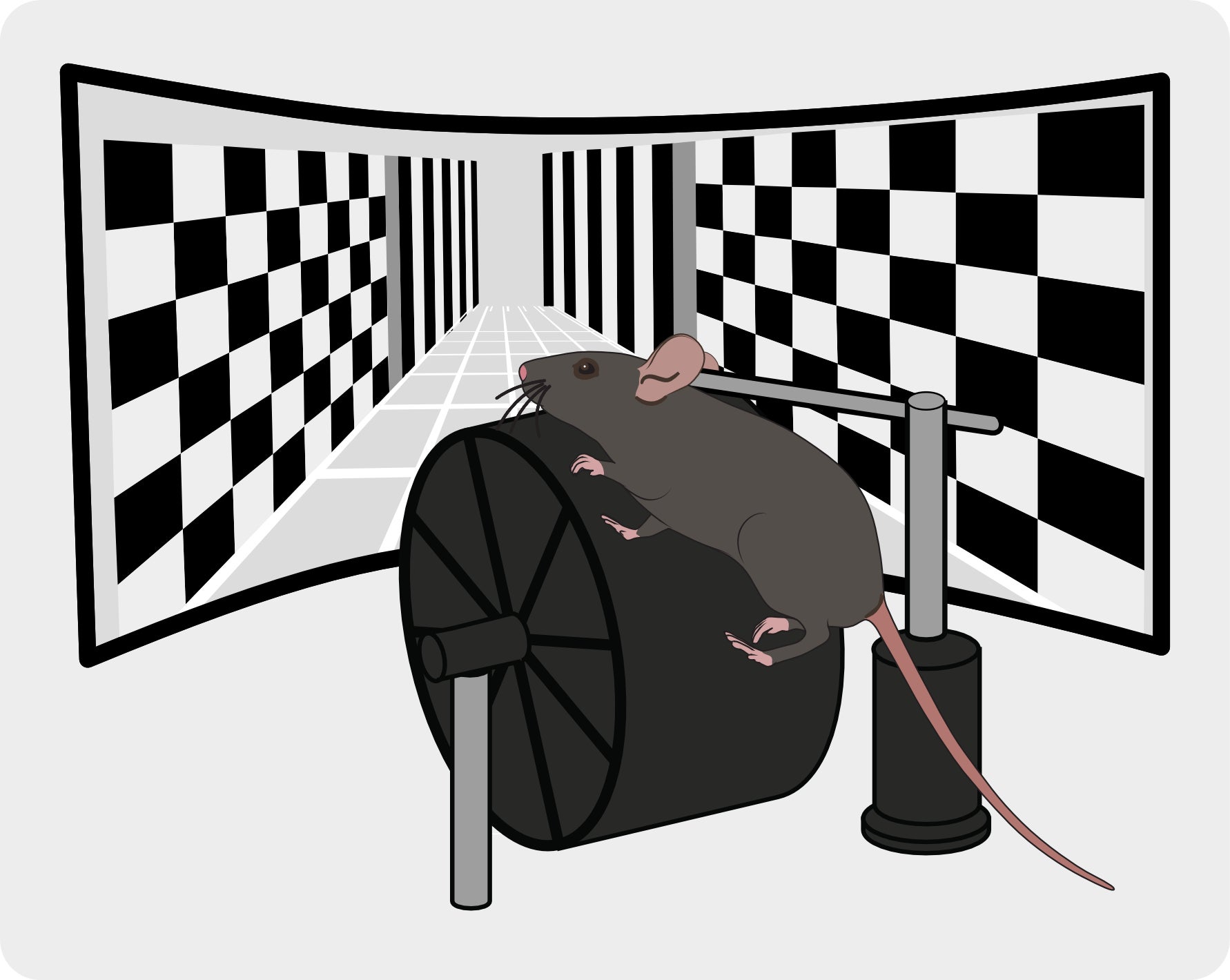By Hakan Kucukdereli and Mark Andermann
We have a powerful urge to reduce the persistent feeling of hunger by eating. However, individuals suffering from anorexia nervosa paradoxically engage in self-starvation for long periods. Studies suggest that this behavior may reflect a coping mechanism to help manage extreme stress. Our lab and others have shown that both food restriction and the mimicking of starvation by activation of agouti-related peptide (AgRP) neurons in the hypothalamus can alleviate anxiety and stress.
The field has long known that anorexia nervosa is linked to stress and anxiety. However, an explanation for why stressed individuals might willfully seek starvation was lacking. We tested the idea that stress may trigger seeking of a starvation-like state in mice. We designed an experiment in virtual reality, where mice can display their preference for an artificially induced starvation-like state induced by delivery of blue light to optogenetically stimulate AgRP neurons. In this video game scenario, the mouse can navigate to different locations in the virtual reality environment to turn this stimulation on or off.

After stress, some female mice develop a strong preference for a room in virtual reality that is paired with optogenetic stimulation of starvation-activated AgRP neurons.
What we found was intriguing. After repeated stress, a group of females (but not males) started to actively seek out the starvation-like state. This preference was stronger in the females who were already more anxious before the start of the experiment.
Our results could help us understand why some people with high levels of anxiety and stress might develop eating disorders like anorexia nervosa. Although we have just scratched the surface, we hope to use this experimental paradigm to study the neural mechanisms in the anxious brain that cause seeking of a starvation state in anorexia nervosa. This, in turn, could lead to more effective treatments for this severe and often fatal condition. For example, although most AgRP neurons are activated during starvation, future pharmacological approaches might selectively activate only the subset of AgRP neurons that suppress stress-related circuits, thereby reducing the drive for self-starvation.
Hakan Kucukdereli is a postdoctoral fellow in the Andermann laboratory.
Mark Andermann is a Professor of Medicine and Neurobiology at Beth Israel Deaconess Medical Center and Harvard Medical School.
Learn more in the original research article:
News Types: Community Stories
